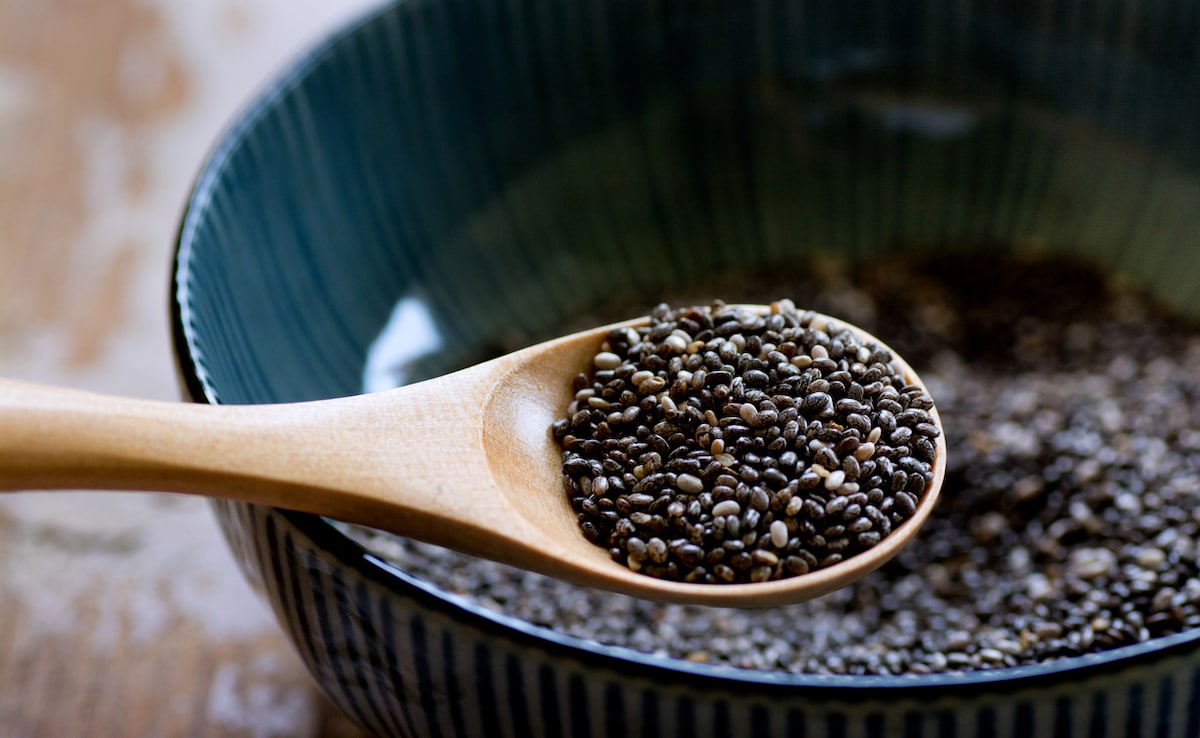
Seeds are the small, nutrient-dense reproductive parts of plants that contain the embryo from which new plants grow. They are incredibly healthy as they are packed with essential nutrients, including fibre, protein, healthy fats, vitamins, and minerals. Seeds like chia, flax, pumpkin, sunflower, hemp, sesame, poppy, quinoa, cumin, and fennel offer a wide range of health benefits. Incorporating a variety of seeds into your diet can significantly enhance your overall health and well-being due to their rich nutrient profiles. In this article, we share a list of seeds you can add to your daily diet and how each of them can boost your health.
8 Seeds that boost health and how to consume to them:
1. Chia seeds
Chia seeds are rich in omega-3 fatty acids, fibre, protein, and antioxidants. They help improve heart health, aid digestion, stabilise blood sugar levels, and promote satiety. Add chia seeds to smoothies, yogurt, oatmeal, or use them to make chia pudding by soaking them in liquid until they form a gel-like consistency.

Photo Credit: iStock
2. Flaxseeds
Flaxseeds are high in omega-3 fatty acids, lignans, and fibre, which help reduce inflammation, improve heart health, support digestion, and may reduce the risk of certain cancers. Ground flaxseeds are more easily absorbed by the body. Add them to smoothies, cereals, baked goods, or sprinkle them on salads.

Photo Credit: iStock
3. Pumpkin seeds
Pumpkin seeds are packed with magnesium, zinc, iron, and antioxidants. They support prostate health, improve heart health, enhance immune function, and reduce inflammation. Eat them raw or roasted as a snack, add them to salads, yogurt, or oatmeal, or incorporate them into baking recipes.

Photo Credit: Pixabay
4. Sunflower seeds
Sunflower seeds are rich in vitamin E, magnesium, and selenium. They promote healthy skin, reduce inflammation, support thyroid function, and enhance heart health. Enjoy them raw or roasted as a snack, sprinkle them on salads or oatmeal, or add them to baked goods.

Photo Credit: iStock
5. Hemp seeds
Hemp seeds provide a complete protein source with all essential amino acids, omega-3 and omega-6 fatty acids, and fibre. They boost heart health, support muscle development, and reduce inflammation. Sprinkle hemp seeds on salads, yogurt, smoothies, or oatmeal, or incorporate them into baked goods and protein bars.

Photo Credit: iStock
6. Sesame seeds
Sesame seeds are high in calcium, magnesium, zinc, and antioxidants. They promote bone health, support metabolic function, reduce inflammation, and improve heart health. Add them to salads, stir-fries, baked goods, or use tahini (sesame seed paste) in dressings and spreads.

Photo Credit: iStock
7. Cumin seeds
Cumin seeds are rich in antioxidants, iron, and beneficial plant compounds. They aid digestion, boost immunity, and have anti-inflammatory properties. Use ground cumin in spice blends, add whole seeds to rice dishes, soups, and stews, or incorporate them into marinades and dressings.

Photo Credit: iStock
8. Fennel seeds
Fennel seeds are high in fibre, antioxidants, and essential oils. They support digestion, reduce inflammation, and may help regulate blood pressure. Chew fennel seeds after meals to aid digestion, use them in cooking, or brew them into a tea.

Photo Credit: iStock
Adding these seeds to your diet not only enhances the nutritional value of your meals but also provides various health benefits that can support overall well-being.
Disclaimer: This content including advice provides generic information only. It is in no way a substitute for a qualified medical opinion. Always consult a specialist or your doctor for more information. NDTV does not claim responsibility for this information.
Track Latest News Live on NDTV.com and get news updates from India and around the world

